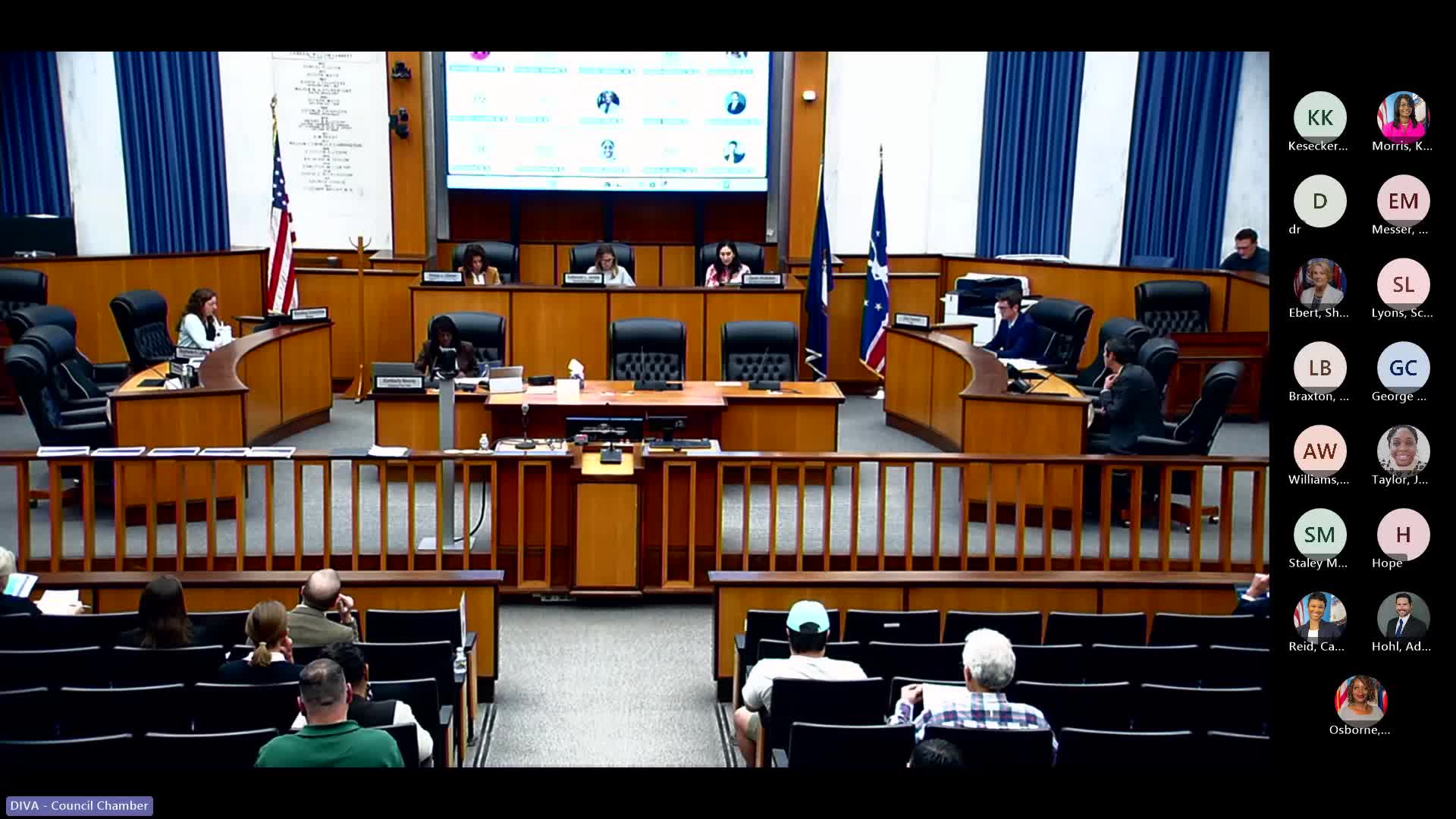Richmond committee delays votes after hours-long debate over proposed FOIA library and administration rubric
Get AI-powered insights, summaries, and transcripts
Subscribe
Summary
The Governmental Operations Committee heard hours of testimony, expert advice and public comment on two competing proposals to create a searchable online FOIA library. Committee members voted to continue both ordinances to the November meeting to allow amendments and further work on a published rubric.
The Governmental Operations Committee paused action on two competing Freedom of Information Act (FOIA) proposals on a split over scope and discretion, voting on Oct. 23 to continue both measures to the November committee meeting.
The committee considered Ordinance 2025‑2‑10, introduced by Council member Gibson, which would create an online FOIA request-and-response library designed to make requests and responses public by default, and Ordinance 2025‑2‑40, an administration-backed approach that would publish a publicly posted rubric guiding what the city would place in a FOIA library.
The debate focused on whether a citywide ordinance should remove discretionary judgment by staff about what to publish or instead allow the administration to apply a published rubric that it could update over time. Council member Gibson argued the council’s ordinance would “remove discretion from the administration” and give the public access to records broadly. The administration said it favored a flexible, published rubric to reduce harm and cost while still posting many records.
Members of the public and outside advocates urged the committee to favor a broad, codified FOIA library. “The foundational way you fix things is by improving transparency,” said Sean Casar of Richmond DSA. Quentin Robbins, chair of Richmond For All, said Gibson’s version “removes discretion from the administration” and gives the public — not government — more control over which records are available.
Megan Rhine, executive director of the Virginia Coalition for Open Government, told the committee that FOIA’s policy statement requires records to be made available to the public and warned against letting government decide what counts as ‘‘public interest’’ for wider dissemination. “The purpose of FOIA … is to give the people of the Commonwealth ready access to public records,” Rhine said, citing the act’s policy statement and existing exemptions that apply during the FOIA review process.
Ross Gaethrough, the city’s director of communications, described the administration’s operational concerns: the volume of requests, the share that come from four high-volume agencies and the risk of posting records that could cause privacy or security harm if published widely. Gaethrough said the administration estimates roughly 5,500 FOIA requests per year and that about 73% of recent requests have come from four agencies — Richmond Police Department, Richmond Fire Department, Department of Social Services and the Department of Emergency Communications, Preparedness and Response.
The administration presented a proposed rubric that would post items meeting objective tests (such as multiple-request overlap, media requests, and records tied to operational accountability) while exempting records that raise privacy, safety or security risks. Administration witnesses said that publishing records broadly changes the distribution from “one-to-one” to “one-to-many” and therefore requires a second, more intensive review before posting. The administration said that modifying the earlier, broader draft reduced estimated staffing needs compared with an earlier fiscal estimate that had suggested three FOIA librarians.
Committee members and advocacy speakers repeatedly pressed for greater objectivity and for codifying parts of the rubric in ordinance language. Several members suggested a compromise path: advance Council member Gibson’s ordinance with recommended amendments and give the administration time to return with an updated, codified rubric for committee consideration.
After extended discussion and public comment, the committee voted to continue both ordinances to the November Governmental Operations standing committee meeting so members can work on amendments and possible codification of the rubric. The motions to continue passed on recorded votes.
The committee’s continuing action preserves a window for additional public input, suggested codification of parts of the rubric, and targeted policy drafting by staff and council sponsors prior to the full council vote expected after the November committee meeting.
